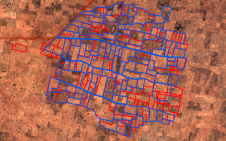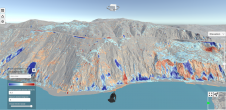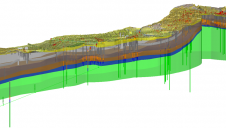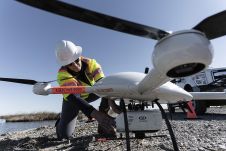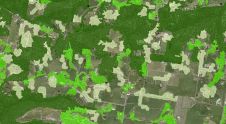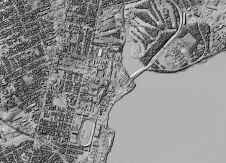Lords and Serfs
The food price rise of 2008 prompted countries that rely on imports for nourishing their people to seek farmland overseas. South Korea, the world's third-largest buyer of corn – mainly from the American continent – turned its attention to Africa and bought over one million hectares of Madagascar’s fertile land for yielding corn. The result was violent protests among Madagascan citizens, two-thirds of whom were living below the poverty line, and the country’s president was forced from office. His successor declared: “The constitution stipulates that Madagascar's land is neither for sale nor for rent,” and revoked the deal.
Food security is not the only issue causing industrial countries to look for land in regions where the majority of people are ‘uprooted’ as a result of the global economy. The need for biofuel, timber and minerals is equally pressing, and all this is shored by the easy transportation of goods across the globe. Indeed, foreign investors are purchasing extensive areas in Africa for the construction of huge industrial farms. Their interests and those of the native rulers often do not match with those of the locals. The latter are the ones who suffer as their livelihoods erode. Why are foreign investors so keen on Africa? Land there is cheap compared to other parts of the world, and it is also plentiful; massive tracts are still uncultivated, although farmland in Sub-Saharan Africa has increased from 145 million to 225 million hectares over the last 50 years. In addition, most land in this region is formally controlled by the state, allowing leaders to easily transfer land rights.
ICT makes it possible to transmit huge sums of money from the one corner of the globe to the other in a split second. International supply chains enable the production of goods designed at Western drawing tables to countries with an abundance of low-cost labour. In the wake of the above, land has also ‘gone global’ and land markets are shifting from domestic to international. Land rights are being transferred on a record scale from one part of the world to another, mainly from vulnerable hamlets in Africa to megacities in major economies. The livelihoods of millions of people are being affected with impoverishment as the outcome. Land is the only source of wealth – definitely, full stop! So, some inconvenient questions arise. Should land be owned by an industrial or financial giant quartered in a high-rise building some 10,000 miles away? Is industrial-scale farming really a means of eradicating poverty in developing countries, one of the Millennium Development Goals? How can the North call itself civilised when it allows millions of people in the South to be driven out of their homes, extruded from their land as once were the Native Americans, even if they were tidily compensated in the eyes of US law? Is this the dawn of a new era of feudalism, with a few lords and millions of serfs? And finally the key question: what role should land administration experts play in the transfer of land rights from the South to the North?
Make your inbox more interesting.Add some geo.
Keep abreast of news, developments and technological advancement in the geomatics industry.
Sign up for free


